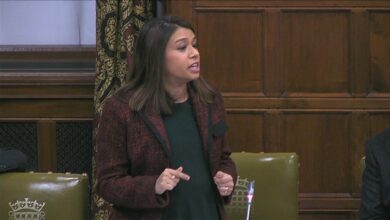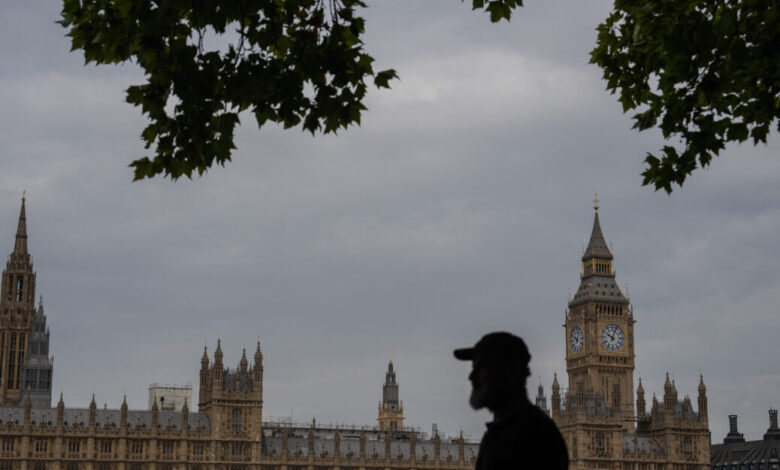
Why the Next Westminster Scandal Is Already Here
Why the next Westminster scandal is already here? That’s the chilling question hanging over British politics. Recent controversies have severely eroded public trust, leaving the system vulnerable to another major blow. We’re not just talking about isolated incidents; we’re looking at a pattern of behavior, a culture perhaps, that breeds scandal. This post dives deep into the current climate, exploring potential flashpoints and the role of media in shaping public perception – and ultimately, whether we’re truly on the precipice of the next big thing.
From the lingering effects of Partygate to whispers of new lobbying scandals, the cracks in the foundation of Westminster are widening. This isn’t just about individual politicians; it’s about systemic issues – a lack of transparency, the influence of powerful lobbies, and the very nature of our political discourse. We’ll examine these vulnerabilities, exploring how past scandals offer a roadmap to future ones, and whether meaningful reforms can truly prevent the next inevitable crisis.
The Current Political Climate: Why The Next Westminster Scandal Is Already Here
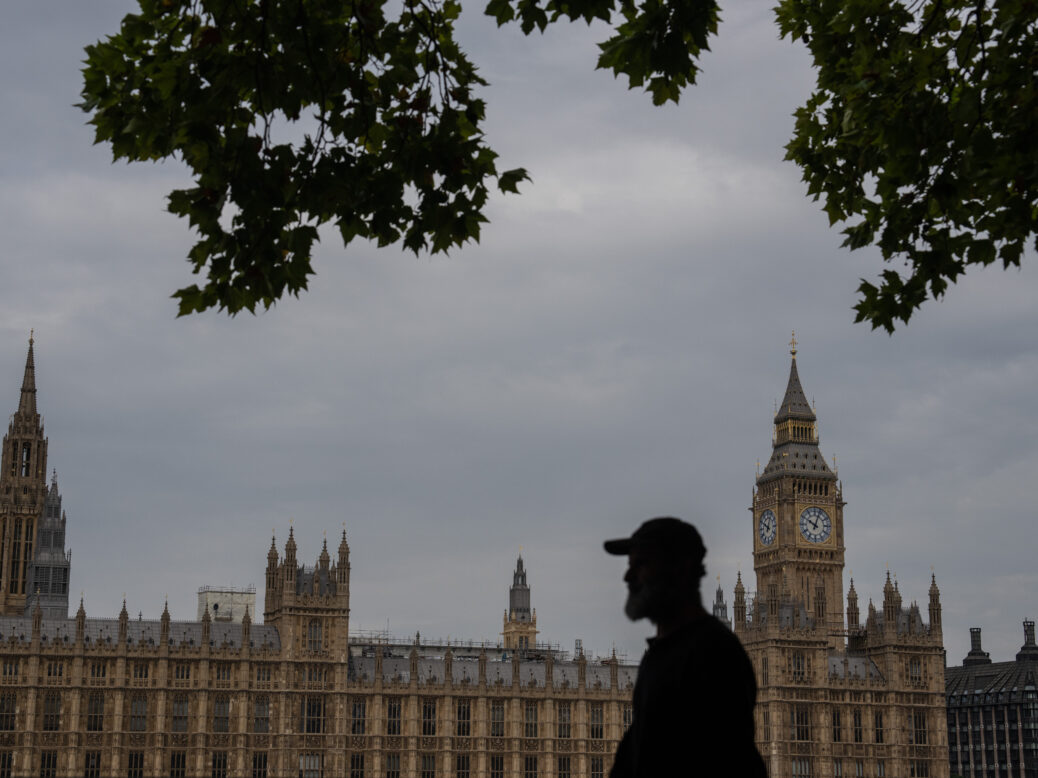
Public trust in Westminster is currently at a historic low. Years of scandals, broken promises, and a perceived disconnect between politicians and the electorate have eroded faith in the political system. This erosion isn’t a sudden event, but rather a culmination of various factors playing out over a considerable period. The current climate is characterized by widespread cynicism and a growing sense that the political establishment prioritizes self-preservation over public service.Recent controversies have significantly impacted public perception.
The “Partygate” scandal, involving alleged breaches of lockdown rules by government officials, fuelled public anger and a sense of hypocrisy. Other scandals, involving allegations of sleaze and lobbying, have further reinforced the narrative of a system riddled with corruption and lacking accountability. The constant drip-feed of negative news, amplified by social media, has created a climate of distrust that is proving difficult to overcome.The current political landscape bears similarities to previous periods of scandal, such as the expenses scandal of 2009.
However, the speed and scale at which information spreads in the digital age, coupled with the 24/7 news cycle, means the impact of these scandals is far more immediate and pervasive. The constant barrage of negative headlines, often fueled by partisan agendas, creates a sense of perpetual crisis, making it harder for the public to discern fact from fiction and to maintain faith in the political process.
The next Westminster scandal is brewing, I suspect, and it’s all about the money. The sheer scale of potential misuse is staggering, especially considering how easily funds get misallocated. It’s deeply worrying when you consider that, as highlighted in this article about how eu handouts have long been wasteful now they must be fixed , poor oversight allows for significant opportunities for corruption.
This lack of accountability is a recipe for disaster, and frankly, the next big scandal is already unfolding in plain sight.
The Role of Social Media in Amplifying Political Narratives
Social media platforms have fundamentally altered the way political narratives are constructed and disseminated. The speed and reach of online platforms allow for rapid dissemination of information, both accurate and inaccurate. This can be beneficial in holding politicians accountable, but it also creates a fertile ground for misinformation and the spread of conspiracy theories. The algorithms that govern these platforms often prioritize engagement over accuracy, leading to the amplification of sensationalist and often divisive narratives.
Honestly, the next Westminster scandal feels inevitable; the sheer level of sleaze is breathtaking. It’s all connected, you see, to the global rise of extremist groups – and how they’re already planning for a potential Trump return. Check out this article on how the Proud Boys are prepping for a second Trump term: how the proud boys are prepping for a second trump term.
Their actions, and the potential fallout, could easily trigger another major political crisis, mirroring the kind of corruption we’re already seeing in Westminster. It’s a scary thought, really.
This can create echo chambers, where individuals are only exposed to information that confirms their pre-existing biases, further polarizing public opinion and eroding trust in established institutions. The lack of effective mechanisms for combating misinformation on social media exacerbates this problem, creating a challenging environment for responsible political discourse.
Honestly, the next Westminster scandal feels like it’s brewing already – the sheer level of lobbying and backroom deals is astounding. This whole situation makes me think about global politics, and how a shift like the one described in this article, a reformer wanting a nuclear deal with america wins irans election , could easily trigger a whole new set of murky dealings behind closed doors in Westminster.
The potential for influence peddling is enormous, and that’s precisely why I’m already bracing myself for the next big blow-up.
Recent Westminster Controversies
The following table summarizes three recent controversies that have significantly damaged public trust in Westminster:
| Controversy | Key Players | Allegations | Outcome |
|---|---|---|---|
| Partygate | Boris Johnson, numerous government officials | Breaches of lockdown rules during COVID-19 pandemic | Fines issued to some attendees, resignation of Boris Johnson |
| Owen Paterson lobbying scandal | Owen Paterson, other MPs | Paid lobbying for private companies while serving as an MP | Resignation of Owen Paterson, changes to lobbying rules |
| Chris Pincher scandal | Chris Pincher, Boris Johnson | Allegations of sexual misconduct against Chris Pincher, questions about Boris Johnson’s knowledge | Chris Pincher suspended from the Conservative Party, resignation of Boris Johnson |
Potential Sources of Future Scandals
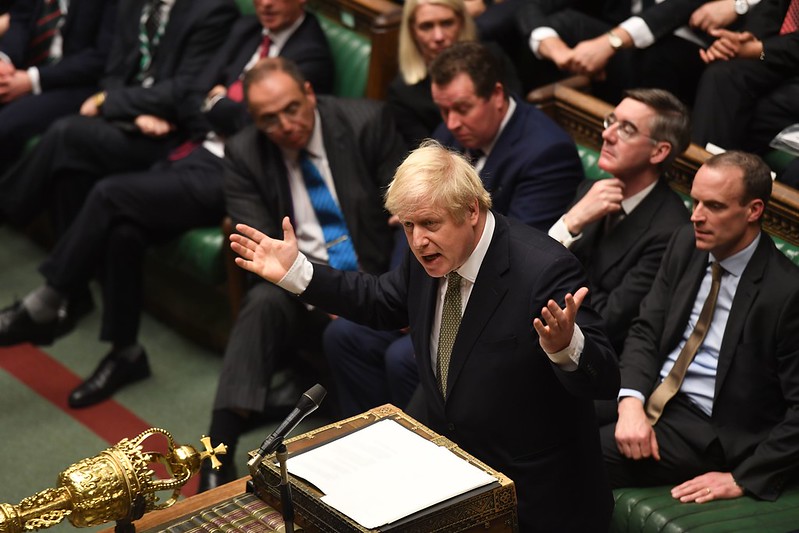
The Westminster system, while possessing a rich history, is not immune to its inherent vulnerabilities. Recurring scandals demonstrate a pattern of weaknesses that, if left unaddressed, will almost certainly lead to future crises of confidence. Understanding these weaknesses is crucial to preventing a repeat of past failures and fostering a more transparent and accountable political landscape.The inherent complexities of the system, combined with the pressures of modern political life, create fertile ground for misconduct.
This section will explore some key areas of concern, examining how past scandals illuminate potential future problems.
Lobbying and Special Interest Influence
The influence of lobbying and special interests presents a significant risk to the integrity of the Westminster system. Powerful lobbies, often representing wealthy corporations or influential groups, can exert undue pressure on MPs and ministers, potentially leading to policy decisions that benefit narrow interests rather than the public good. Opacity in lobbying activities makes it difficult to track the extent of this influence, creating an environment ripe for abuse.
The lack of comprehensive and easily accessible registers of lobbying activities allows for covert influence peddling. Past scandals, such as those involving donations and access to ministers, highlight the potential for serious ethical breaches when lobbying is not properly regulated. The potential for quid pro quo arrangements, where favours are exchanged for political support, remains a significant threat.
Increased transparency and stricter regulations are vital to mitigate this risk.
Financial Transparency and the Funding of Political Parties
A lack of financial transparency within political parties and campaigns creates significant opportunities for corruption and scandal. The opaque nature of party funding allows for undisclosed donations, potentially from foreign entities or those with vested interests, to influence policy decisions. This lack of accountability undermines public trust and erodes confidence in the democratic process. The absence of rigorous auditing and oversight mechanisms further exacerbates this problem.
Scandals involving undeclared donations or misuse of campaign funds illustrate the dangers of inadequate financial transparency. Strengthening regulations and promoting greater openness in party finances are essential to prevent future scandals.
Weaknesses in Ministerial Accountability
The system of ministerial accountability, while theoretically robust, has been shown to be susceptible to manipulation and circumvention. Ministers are accountable to Parliament, but the mechanisms for holding them to account can be weak, particularly when party loyalty takes precedence over scrutiny. The ability of ministers to control information flow and limit scrutiny, combined with the potential for conflicts of interest, can create opportunities for abuse of power.
Past scandals have shown how ministers can avoid accountability through obfuscation, delays, and ultimately, resignation without full investigation. Strengthening parliamentary oversight and promoting greater independence in investigations are key to enhancing ministerial accountability.
Examples of Past Scandals and Their Relevance
The expenses scandal of 2009, the cash-for-honours affair, and various lobbying scandals serve as stark reminders of the vulnerabilities within the Westminster system. These scandals exposed weaknesses in financial transparency, accountability mechanisms, and the influence of special interests. They demonstrated how seemingly minor breaches of conduct can escalate into major crises, damaging public trust and eroding confidence in the political process.
The common thread running through these scandals is a lack of robust oversight and a failure to address systemic vulnerabilities.
Five Potential Future Scandals
Considering current trends and weaknesses, five potential future scandals could emerge:
- A scandal involving the misuse of public funds related to post-Brexit contracts.
- A scandal involving undisclosed lobbying related to climate change policy.
- A scandal involving the misuse of personal data by a political party.
- A scandal involving conflicts of interest among senior government officials.
- A scandal involving foreign interference in the electoral process.
Preventative Measures and Reforms
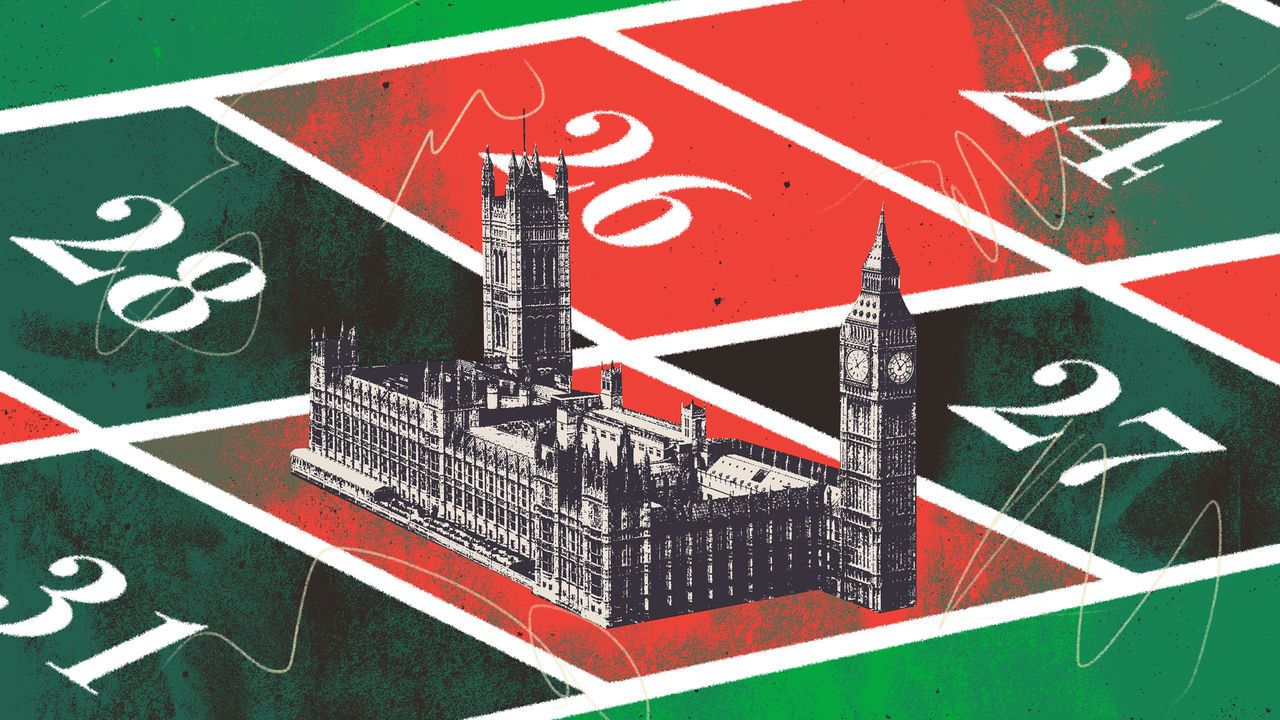
The current state of affairs in Westminster demands a serious overhaul of its systems to prevent future scandals. Simply reacting to each crisis as it emerges is unsustainable; proactive measures are crucial to restoring public trust and ensuring the integrity of the political process. This requires a multifaceted approach, addressing weaknesses in transparency, accountability, and the regulatory framework itself.
Existing Regulatory Mechanisms and Their Effectiveness
Existing regulatory mechanisms in Westminster, while present, have demonstrably failed to prevent recent scandals. The Independent Office for Police Conduct (IOPC), for example, while intended to oversee police conduct, has faced criticism for its slow processes and perceived lack of sufficient power to effect meaningful change. Similarly, the parliamentary standards commissioner’s office, responsible for investigating breaches of the MPs’ code of conduct, has been criticized for its limitations in scope and enforcement.
These weaknesses highlight the need for a more robust and independent oversight system. The lack of truly independent investigations, coupled with often lengthy processes, allows time for evidence to be obscured or witnesses to be influenced, weakening the impact of any subsequent findings. This necessitates a complete review of the existing framework and a strengthening of its investigative and enforcement powers.
Comparative Analysis of Preventative Measures in Other Countries
Several countries have implemented reforms that have proven effective in preventing or mitigating political scandals. New Zealand, for example, has a strong emphasis on proactive transparency, with a robust system of declarations of interests and a culture of open government. This contrasts sharply with the more opaque practices sometimes seen in Westminster. Similarly, Canada’s system of independent ethics commissioners and robust parliamentary committees provides a more effective mechanism for oversight and accountability.
These examples demonstrate that a more proactive, transparent, and independently-driven approach can significantly reduce the likelihood of scandals. The key difference often lies in the degree of independence granted to oversight bodies and the strength of the legal frameworks supporting them. These bodies must be free from political interference and have the power to impose meaningful sanctions.
Proposed Reforms for Westminster, Why the next westminster scandal is already here
A comprehensive reform package for Westminster should focus on three key areas: enhanced transparency, strengthened independent oversight, and stricter enforcement of existing rules. Specifically, this could involve:
- Mandatory and publicly accessible registers of interests: Expanding the scope of existing registers to include all sources of income and gifts received by MPs and their staff, along with stricter enforcement of reporting requirements. This would enhance public scrutiny and deter conflicts of interest.
- Strengthened independent oversight bodies: Granting the parliamentary standards commissioner and other relevant bodies greater investigative powers, including the ability to compel witnesses and access relevant documents, along with increased independence from political influence. This would allow for more thorough investigations and timely resolutions.
- Increased sanctions for breaches of the code of conduct: Implementing stricter penalties for breaches of the code of conduct, including suspension from Parliament or even expulsion, to deter misconduct and send a clear message that such behaviour will not be tolerated.
- Implementation of a robust whistleblower protection program: Creating a secure and effective system for individuals to report potential wrongdoing without fear of reprisal. This would encourage the reporting of misconduct and aid in preventing scandals before they escalate.
Implementation would require legislative changes, including amendments to the relevant parliamentary standing orders and potentially new legislation to strengthen the powers of oversight bodies. Furthermore, a cultural shift within Westminster is necessary, promoting a culture of accountability and transparency that prioritizes ethical conduct over partisan interests. This requires a commitment from all stakeholders, including MPs, party leaders, and the wider political establishment.
The evidence suggests that the next Westminster scandal isn’t just looming; it’s already embedded within the system. The erosion of public trust, coupled with systemic weaknesses and a media landscape eager to amplify controversy, creates a perfect storm. While reforms are desperately needed, the question remains: are they enough to prevent the next inevitable implosion? Only time will tell, but the signs are deeply troubling.
The fight for transparency and accountability is far from over, and the battle for the soul of Westminster continues.

